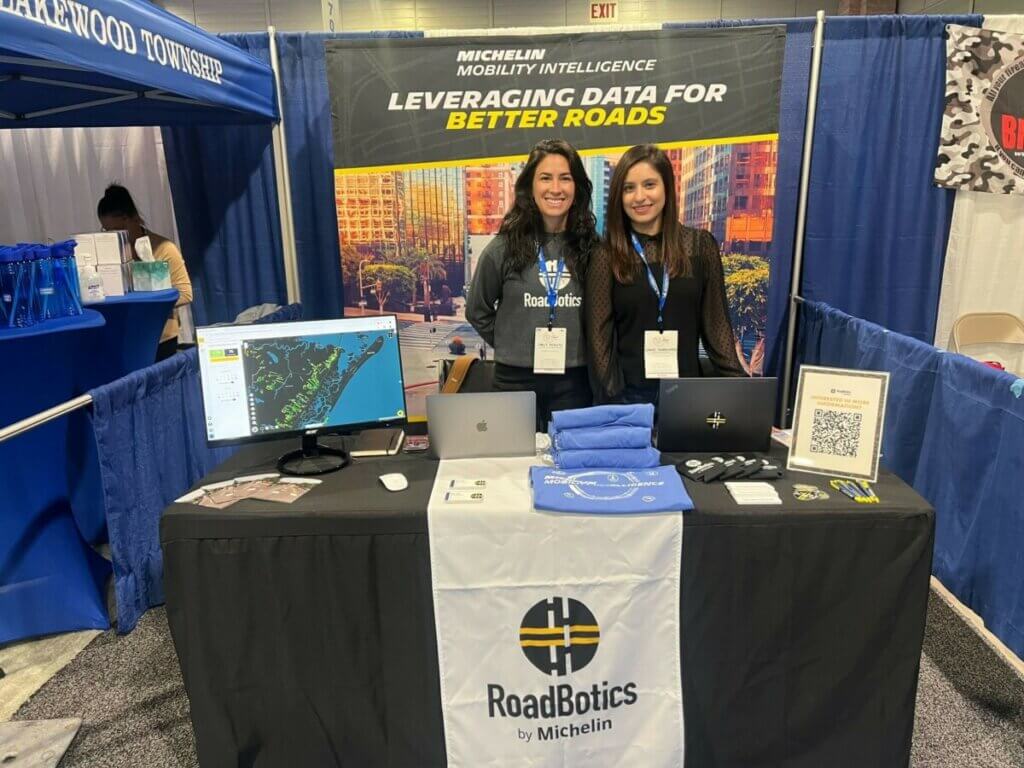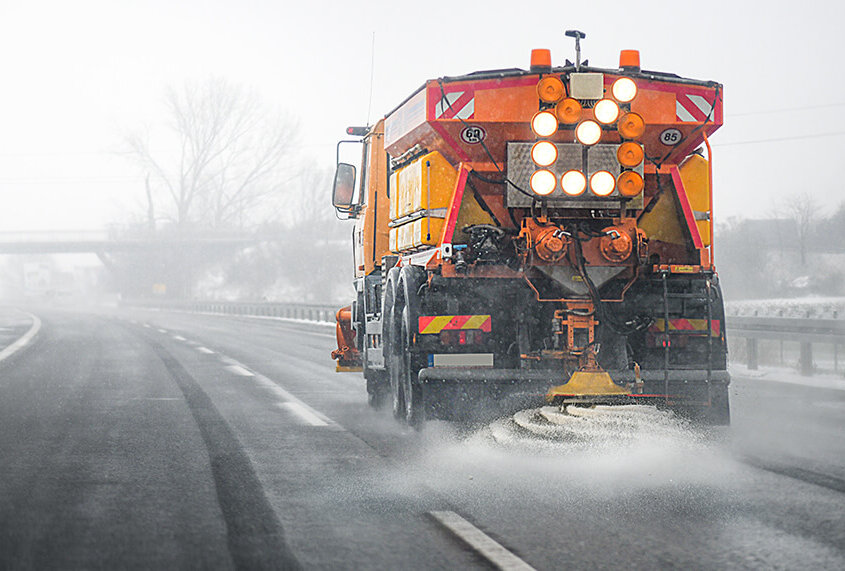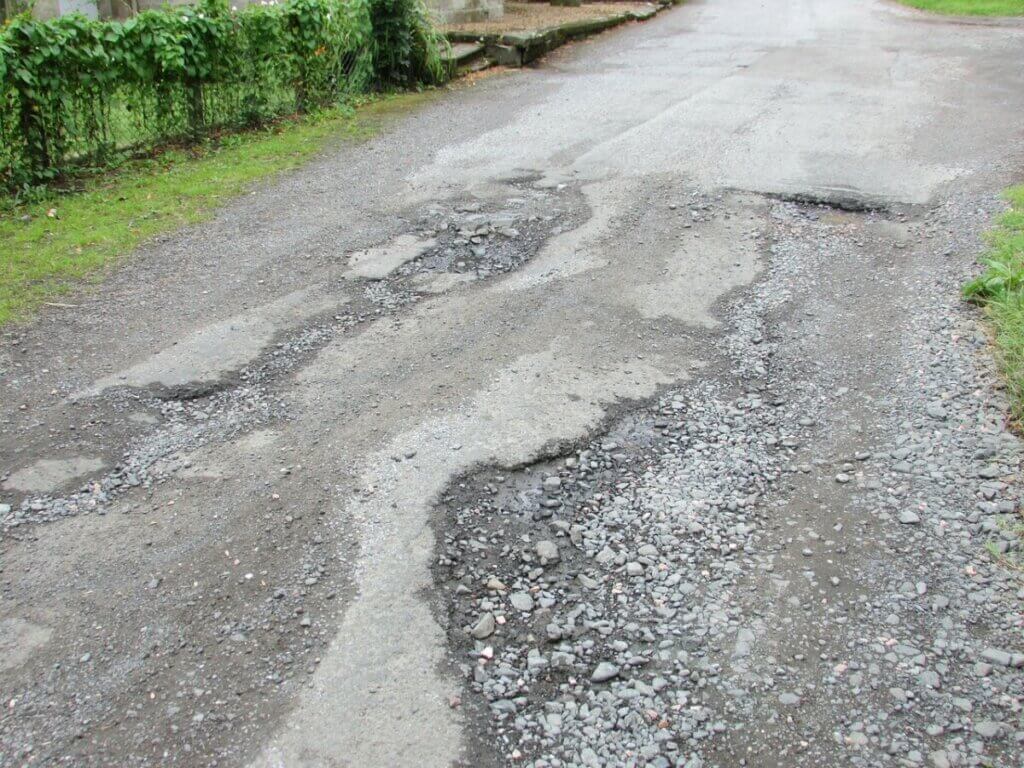Local governments are like the fascia in our muscles.
Similar to the intricate network of connective tissues that makes us move, there is an extensive network of over 39,000 local governments in the US that act as the connective material holding our society together.
While citizens tend to their families and jobs, local governments work to ensure the essentials like water, housing, transportation, and emergency systems are operating smoothly.
Because of the climate crisis, it is more critical than ever that local governments think decisively about how their community can implement more sustainable practices.
How can overburdened governments move efficiently towards sustainability?
Easily Increase Your Community’s Sustainability
Sustainability does not need to be overly complicated. For example, one simple change with road maintenance can directly benefit the environment, economy, and society.
What is this change?
Using a data-drive approach to preventative maintenance.
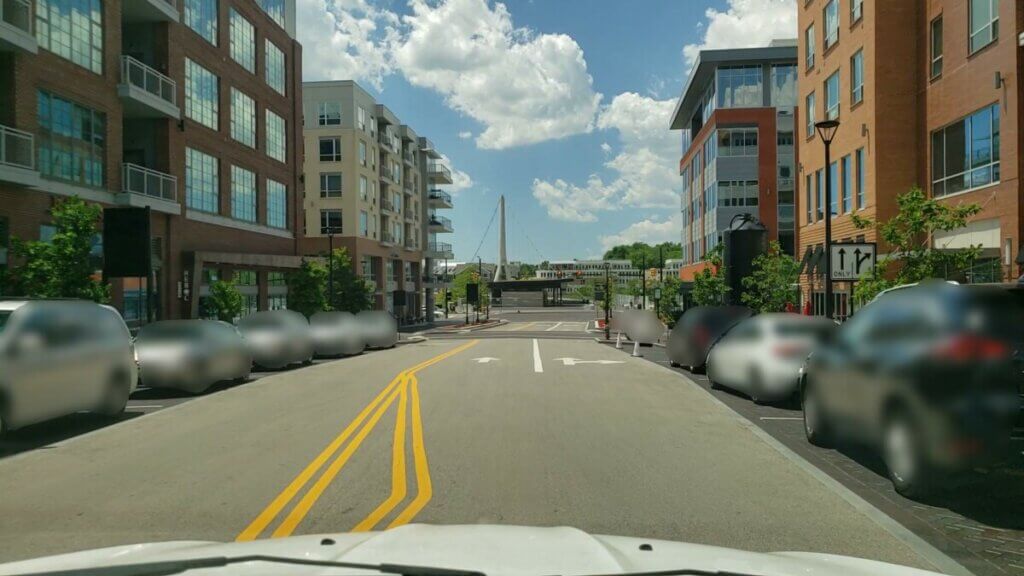
With RoadBotics smartphone road assessments, you can get an objectively rated view of your entire network.
By focusing on a data-driven approach to preventative maintenance, local governments can reduce their carbon footprint while using less resources and equipment.
Shifting the focus to sustainability can be synonymous with efficiency: the more efficient a process is, the less resources are wasted, and the longer the infrastructure can last. These resource savings also can translate into less tax-payer dollars.
Let’s take a closer look at the byproducts of implementing preventative maintenance.
Budgets Can Benefit from Improving Sustainability
As a starting point, local governments spend on average $1 million to pave one mile of new road. Compare this with the average costs of measures like patching a pothole at $100 – $300 per pothole and crack sealing at $0.35-$1.00 per linear foot, and you see a significant cost advantage in performing preventative maintenance over repaving.
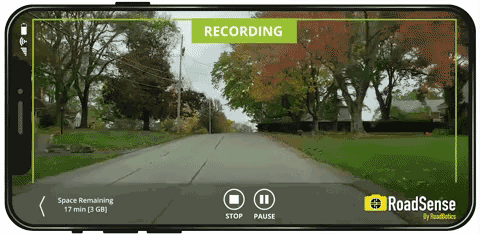
If local governments opt for new technologies like RoadBotics objective road assessment software, they can further decrease costs. Automated road assessments can be completed in 2-3 days using a smartphone, compared to the average 2 month minimum using more expensive equipment for a manual inspection.
These digitized assessments reduce labor costs, too, take less time for analysis, and make the data viewable from a desktop, rather than wasting time in the field.
Sustainability Opens Doors for More Sustainability
Creating new roads is a drain on resources, but isn’t it inevitable?
Not necessarily.
By keeping current roads in the best condition possible for as long as possible, local governments can start to improve their road network overall.
One way to keep them in the best condition is to advocate for more sustainable transportation options like public transit, walking, biking, or ride sharing. These can reduce the number of vehicles on the road, thereby reducing traffic loading. Another is to develop a preventative maintenance strategy based on objective data to extend the life of a road. By taking a granular approach to tackling road distresses before the road is unsalvageable, communities are putting themselves on a more sustainable path.
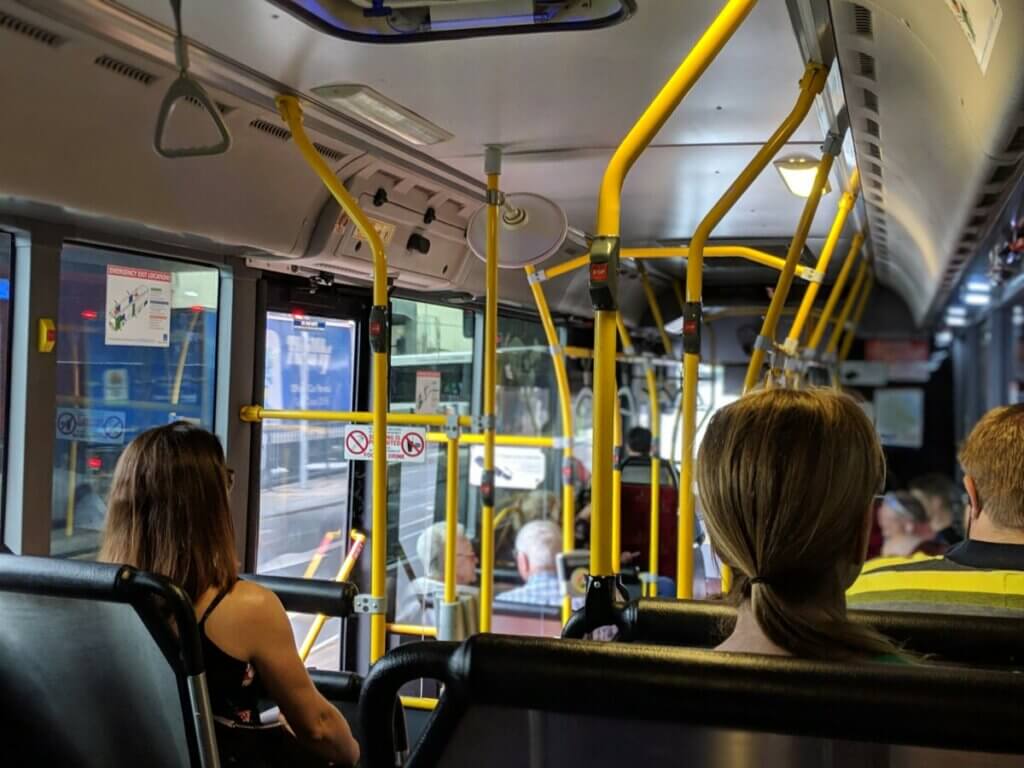
Did you know Public Transportation received $66 billion in funding from the Infrastructure Bill? Read our April Update to learn more.
Steps Towards Sustainable Roads
Asphalt may appear to be a sustainable option because it is 100% recyclable. In fact, asphalt pavement is one of America’s most recycled materials, with approximately 100 million tons reused to surface and support new roads each year (3).
But America’s road and highway network is extensive.
There are approximately 2.6 million miles of paved roads – that’s enough roadway to circle the Earth over 100 times! And of those millions of miles, 94% are surfaced with asphalt pavement.
The utilization of asphalt to construct new roads impacts the environment at varying levels throughout its lifecycle – material, construction, maintenance, use, and end of life phases. This cycle was repeated many times to create America’s giant road and highway network – too many to make asphalt a long-term sustainable option.
While there is a wide range of academic research measuring the environmental impacts of asphalt, it is widely acknowledged that the material and use phases are the most significant contributors of environmental harm.
With the exception of the end of life phase, the four other phases collectively contribute to fossil fuel and mineral depletion, greenhouse gas emissions, acidification, and air and water toxicity. For example, between the material and construction phases, it is estimated that 1,400 to 2,300 tons of CO2 are released during the construction of one mile of roadway.
Understanding that asphalt pavement is not a sustainable solution over the long term, pavement scientists are discovering alternative solutions to create road surfaces including recycled plastic, trash, plant-based materials, and even coffee cups.
Although the maintenance phase is a contributor, it is significantly less than the material phase. Therefore, a preventative maintenance strategy is a much more sustainable practice than reconstructing roads.
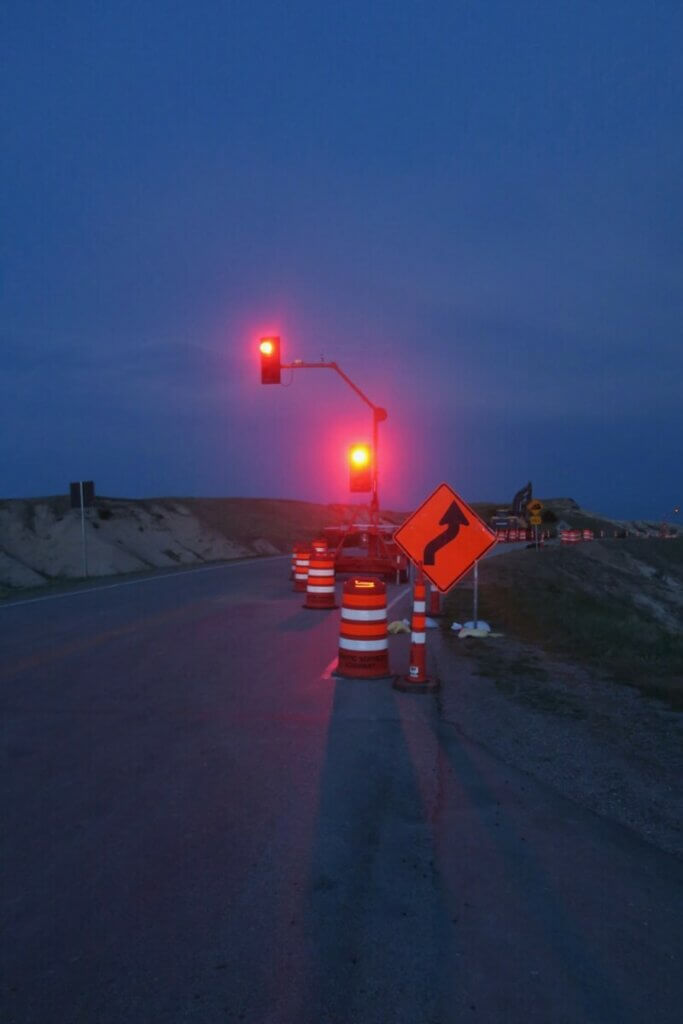
Sustainable Communities in Action
RoadBotics is proud to share that almost half of our government and community clients in Pennsylvania are taking huge steps to commit to sustainability. In fact, those clients have received or committed to a Sustainable Pennsylvania certification.
The Sustainable PA Community Certification was created through a partnership between the Pennsylvania Municipal League and Sustainable Pittsburgh, and is a “voluntary performance recognition program to help municipalities achieve their sustainability goals to save money, conserve resources, and encourage innovation.” Municipalities must prove they are meeting point-weighted criteria, and the more points they earn, the higher their certification achievement level is.
Initiatives such as allocating enough funding for public works projects, including road repair, walking trails, bicycle lanes, and public or alternative transportation, are just a few of the ways our clients are moving the needle on sustainable transportation. Additional criteria fall under categories such as Governance and Community Engagement, Diversity, Equity, and Inclusion, Education, Housing, Environmental Stewardship, and more. The breadth of initiatives illustrates how sustainability can be impactful in every facet of governance and society.
In the Platinum category, Cranberry Township and Ross Township are committed. You can learn even more about Cranberry’s use of RoadBotics technology in this case study.
In the Gold category, RoadBotics clients include Upper Saint Clair Township, Dormont Borough, Bethel Park, and Castle Shannon Borough.
Finally, in the Silver category, RoadBotics clients include Peters Township, Robinson Township, and Shaler Township. Watch this client story to learn more about Shaler Township’s use of RoadBotics.
Additionally, McKees Rocks Borough and Wilkins Township have made a commitment to sustainability by pledging to adopt the practices required to achieve the Sustainable PA Certification.
Congrats to our clients for their achievements in sustainability!
References:
- https://www.nlc.org/number-of-municipal-governments-population-distribution
- https://sealmaster.net/faq/much-asphalt-crack-filling-cost/
- https://www.wolfpaving.com/blog/bid/52681/Asphalt-Pavement-America-s-Most-Recycled-Material
- https://www.asphaltpavement.org/uploads/documents/GovAffairs/NAPA%20Fast%20Facts%2011-02-14%20Final.pdf
- https://www.sciencedirect.com/science/article/pii/S1996681416300025#b0050
- https://transdef.org/media/Sightline-GHG-analysis.pdf
- https://eandt.theiet.org/content/articles/2018/09/is-it-the-end-of-the-road-for-asphalt-and-concrete/
- https://www.theguardian.com/australia-news/2020/aug/20/this-man-turns-discarded-coffee-cups-into-roads


